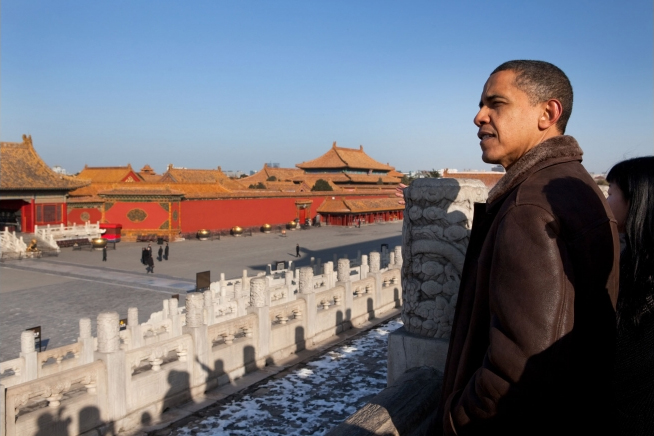Putting Foreign Policy Back on the Map
 Heading into election day, the country seems set for a showdown. The final weeks have seen rollercoaster poll ratings. Obama, who enjoyed a comfortable lead for much of the election season, has had to deal with surging Romney popularity, and polls now point almost to a dead tie. Last week the candidates addressed in their final debate a topic that has thus far been conspicuously absent: foreign policy.
Heading into election day, the country seems set for a showdown. The final weeks have seen rollercoaster poll ratings. Obama, who enjoyed a comfortable lead for much of the election season, has had to deal with surging Romney popularity, and polls now point almost to a dead tie. Last week the candidates addressed in their final debate a topic that has thus far been conspicuously absent: foreign policy.
As we all know, the debate, keeping with the spirit of the election, amounted to little more than "gotcha" politics — I think Romney understands now that Iran can make it to the sea without Syria. Now that the debate's over and the candidates' respective gaffes have been recapped ad nauseam, where did foreign policy go?
Yes, this election has been about the economy, the economy, and the economy. But, I am of the (perhaps overly cynical) persuasion that whoever's living in the White House won't really change much. There is no magic button in the Oval Office that controls unemployment rates or the price of gas (it seems like people forget this). The president cannot circumnavigate the Federal Reserve, Congress, mega-corporations, and the panoply of bureaucrats and government agencies that also effect the ups and downs of the economy. Nor can he change the economic policies of our friends across the Atlantic or our largest trading partner on the other side of the Pacific.
There just might be a magic button for foreign policy, though. What the electorate is decidedly ignoring is the Commander-in-Chief's unrivaled ability to change the world -- this election might just effect every single person on the planet more than the average American. Remember Bush's pet projects? Or even Obama's gamble in Libya? I know I do, but for some reason foreign policy still hasn't entered the campaign discourse at all.
Really, since the September 11 Benghazi attacks, you might think that the world is made of the U.S. and Libya, and maybe a few other countries in the Middle East. Hunting the alleged masterminds behind the Benghazi attacks is not a foreign policy though. Neither is arguing about who loves Israel more. Nor does effectively ignoring Syria while Russia ups the stakes make a foreign policy.
Whatever happened to Cuba, North Korea, Russia, Palestine, Egypt, Afghanistan, Iraq, Venezuela, Pakistan, the Euro Zone, China, or Japan? The citizens of the United States need to stop being content with bromides about helping Syria's rebels or putting more pressure on Iran and put foreign policy back on the map. Details about the Middle East would be a good starting point, but the United States conducts business with every country on the globe. Discussing China as a real country that presents real opportunities to us — not just a job-sucking, currency-manipulating, vote-rigging, hegemony-threatening group of communists — would also be a welcome addition to the campaign rhetoric.
The fact is, regardless of how many statistics Obama and Romney drop about their economic or health care policies, neither the average voter nor the incredibly exceptional American voter is going to understand them. What we can understand is how our Commander-in-Chief plans to navigate the world's increasingly treacherous diplomatic waters and what his priorities are.
